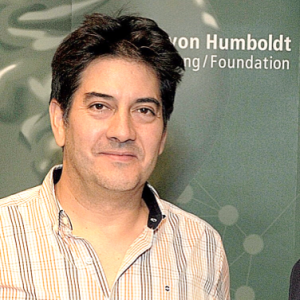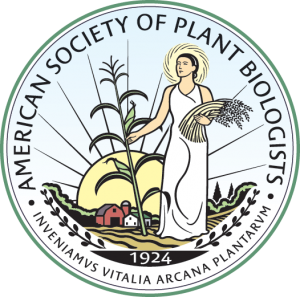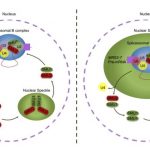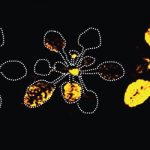Plantae Presents: Elizabeth Vierling and Rodrigo Gutierrez
Plantae Presents – Elizabeth Vierling and Rodrigo Gutierrez
Wednesday October 21 10am EDT, 4 pm CET
Elizabeth Vierling: From Chaperones to Mitochondria: Surviving Stress
 Elizabeth Vierling is Professor at the University of Massachusettes Amherst and Founding Member of the ASPB Legacy Society. She majored in Botany as an undergraduate at the University of Michigan, and got hooked on lab research during a junior year abroad Freiburg, Germany. After a brief year as a technician at Northwestern University, she got a PhD in Biology at the University of Chicago studying the biogenesis of photosystem I. Her postdoc with Joe L. Key at the University of Georgia started her on research on heat shock proteins (HSPs), first focusing on chloroplasts. This work continued in her faculty position in the Biochemistry Department at the University of Arizona in Tucson, Arizona, where work expanded from chloroplast sHSPs to homologues in the cytosol and Hsp101, and then into isolating Arabidopsis thaliana mutants defective in heat tolerance. Projects now encompass not only HSPs, but also how nitric oxide homeostasis impacts growth and fertility and the control of mitochondrial gene expression and respiration. She’s now at the Biochemistry & Molecular Biology Department at the University of Massachusetts in Amherst, MA, and writes that “My research includes collaborations across the world that have been wonderfully enriching and expanded my research program in interesting and productive ways.”
Elizabeth Vierling is Professor at the University of Massachusettes Amherst and Founding Member of the ASPB Legacy Society. She majored in Botany as an undergraduate at the University of Michigan, and got hooked on lab research during a junior year abroad Freiburg, Germany. After a brief year as a technician at Northwestern University, she got a PhD in Biology at the University of Chicago studying the biogenesis of photosystem I. Her postdoc with Joe L. Key at the University of Georgia started her on research on heat shock proteins (HSPs), first focusing on chloroplasts. This work continued in her faculty position in the Biochemistry Department at the University of Arizona in Tucson, Arizona, where work expanded from chloroplast sHSPs to homologues in the cytosol and Hsp101, and then into isolating Arabidopsis thaliana mutants defective in heat tolerance. Projects now encompass not only HSPs, but also how nitric oxide homeostasis impacts growth and fertility and the control of mitochondrial gene expression and respiration. She’s now at the Biochemistry & Molecular Biology Department at the University of Massachusetts in Amherst, MA, and writes that “My research includes collaborations across the world that have been wonderfully enriching and expanded my research program in interesting and productive ways.”
Rodrigo Gutierrez: System Biology and phylogenomics at the limits of life in the Atacama Desert
 Rodrigo Gutierrez is a Professor at the Department of Molecular Genetics and Microbiology, P. Universidad Católica de Chile, and is one of the founders of the Chilean Society of Plant Biologists and first elected president. He obtained his PhD from Michigan State University and was a postdoc with Gloria Coruzzi at New York University. His main interest is to use systems biology approaches to understand mechanisms to regulate gene expression in response to nitrogen nutrients or metabolite signals in plants using A. thaliana as a model system. It is of paramount importance for modern agriculture to improve crop N use efficiency as world population, food needs and crop use diversification (e.g., for biofuel production) will continue to increase. He is also the Deputy Director of the Millennium Institute for Integrative Biology and Principal Investigator at the FONDAP Center for Genome Regulation, where he is working on the co-evolution of adaptive genomic traits in Atacama Desert plants, the topic of his seminar in this series. @Rodrigo_G_I
Rodrigo Gutierrez is a Professor at the Department of Molecular Genetics and Microbiology, P. Universidad Católica de Chile, and is one of the founders of the Chilean Society of Plant Biologists and first elected president. He obtained his PhD from Michigan State University and was a postdoc with Gloria Coruzzi at New York University. His main interest is to use systems biology approaches to understand mechanisms to regulate gene expression in response to nitrogen nutrients or metabolite signals in plants using A. thaliana as a model system. It is of paramount importance for modern agriculture to improve crop N use efficiency as world population, food needs and crop use diversification (e.g., for biofuel production) will continue to increase. He is also the Deputy Director of the Millennium Institute for Integrative Biology and Principal Investigator at the FONDAP Center for Genome Regulation, where he is working on the co-evolution of adaptive genomic traits in Atacama Desert plants, the topic of his seminar in this series. @Rodrigo_G_I
Moderated by Gil Eshel
 Gil Eshel is a postdoctoral research associate at New York University, in the lab of Gloria Coruzzi, where he uses evolutionary and systems biology approaches to study the adaptation of desert plants to dry and nutrient-poor soils. Gil completed his PhD in Desert studies at the Jacob Blaustein Institutes for Desert Research (Ben-Gurion University of the Negev, Israel), under the supervision of Simon Barak, Shirli Bar-David and Aaron Fait, where he studied abiotic stress tolerance mechanisms in the desert plant Anastatica hierochuntica. His research goals are to understand how plants evolved and adapt to extreme environments, and to identify the genetic components that can be used for improving crop resilience. He is also interested in developing new computational tools and approaches to mine large genomic data to gain evolutionary and functional insights.
Gil Eshel is a postdoctoral research associate at New York University, in the lab of Gloria Coruzzi, where he uses evolutionary and systems biology approaches to study the adaptation of desert plants to dry and nutrient-poor soils. Gil completed his PhD in Desert studies at the Jacob Blaustein Institutes for Desert Research (Ben-Gurion University of the Negev, Israel), under the supervision of Simon Barak, Shirli Bar-David and Aaron Fait, where he studied abiotic stress tolerance mechanisms in the desert plant Anastatica hierochuntica. His research goals are to understand how plants evolved and adapt to extreme environments, and to identify the genetic components that can be used for improving crop resilience. He is also interested in developing new computational tools and approaches to mine large genomic data to gain evolutionary and functional insights.
This webinar is freely available thanks to the support of the American Society of Plant Biologists. Join Today.




